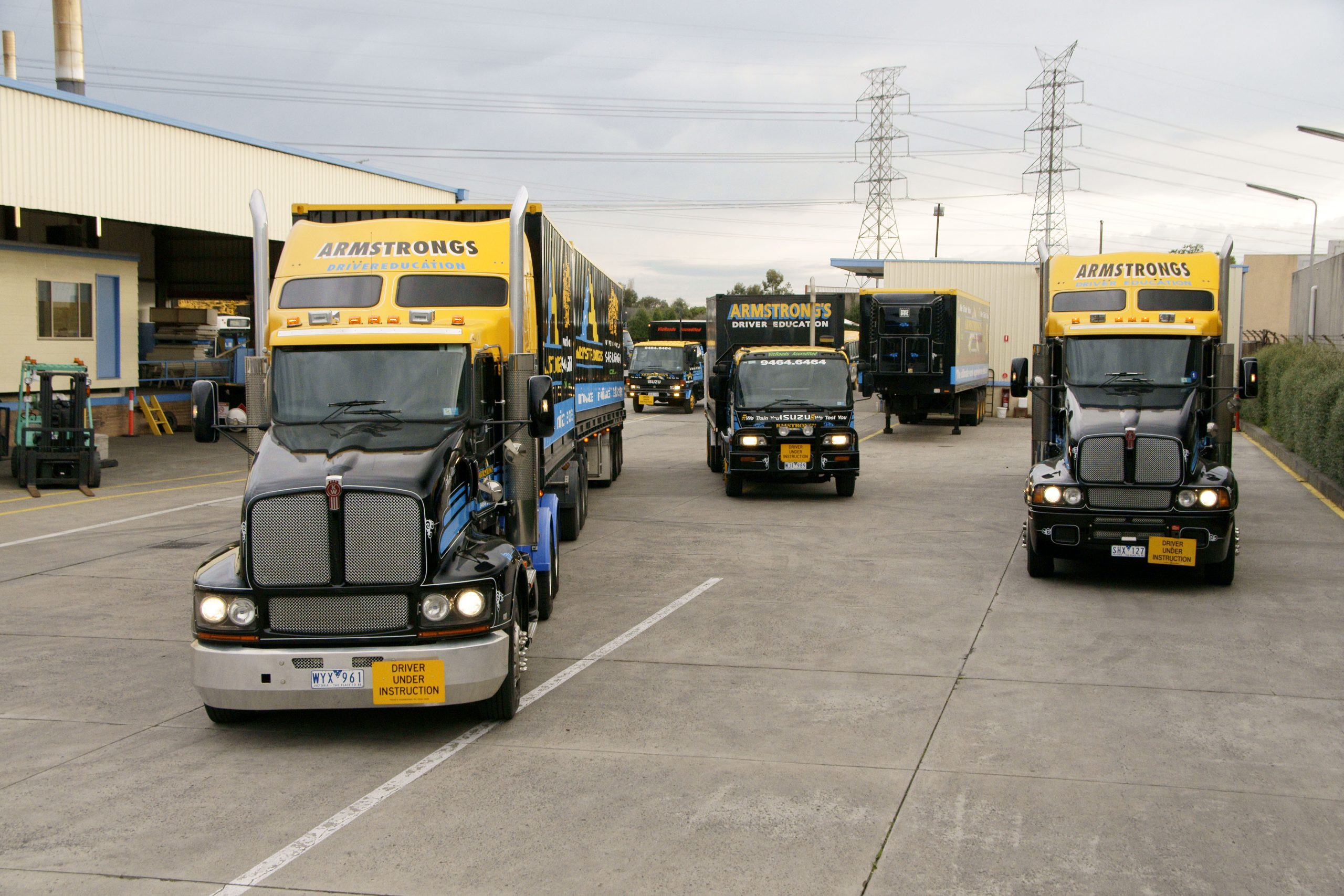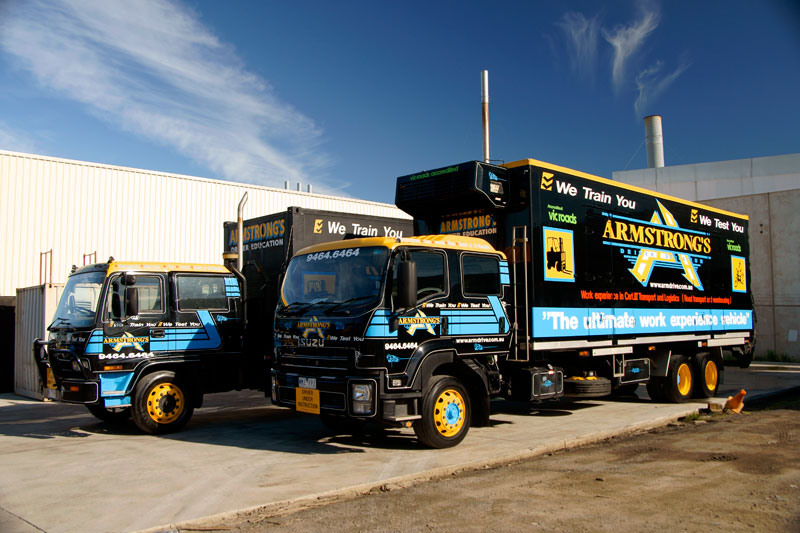On the basis that anyone thinking about getting any type heavy vehicle licence actually wants to learn to something whilst they undertake their training, there are five questions that you need to ask each of the training providers you are considering signing up with (which of course includes Armstrongs right?).
Remember, you are about to hand over somewhere in the vicinity of a thousand bucks of your hard earned money to someone for something that you can’t try before you walk in, and you’ll only know the true value of it well after you have walked out.
Unfortunately, just about everyone out there who wants to get into the road transport business (including aspiring bus drivers) think that what they are “buying” is a heavy vehicle licence – this is 100% INCORRECT. What you are buying is “training”, and what you walk out the door with (hopefully!) is a Certificate of Competency that VicRoads need to see as proof that you have passed your Final Competency Assessment (FCA).
The real kicker is, you’re not going to know the quality of what you bought until such time as your put through an evaluation drive with a prospective employer or you’ve been handed the keys to a very expensive truck. So, back to the point – you’ve just handed over roughly a thousand dollars for your HR training and hopefully at this point you’re thinking “Right, I demand value for my money. I want skills. I want knowledge!” Remember, your heavy vehicle licence is only as good as the skill and knowledge behind it – or as useless as the couple of hours that you put into getting it depending on how you want to look at it.
So, with this approach, you’re now in the driver’s seat (sorry, no pun intended!) to demand more from any of the heavy vehicle licensing providers you call.
Ask these three questions and you’re on your way to no-where:
1. “How cheap can I do it” – Wrong!
2. “How quick can I get it done?” – Wrong!
3. “Can I take the test earlier?” – Wrong!
Ask these five questions and you’ll very quickly sort the wheat from the chaff:
1. Are the training facilities designed specifically for heavy vehicle training and assessment?
You can also check this by going to the training provider’s website, looking at online street maps, and doing a drive-by. You might want to look into it a little closer if the provider’s website doesn’t show their facilities (is that for obvious reasons?). Also, when you visit the training provider you will be able to tell straight away whether some or all of your training and assessment will be conducted at some other location – if you can’t see a reversing range you might want to make some inquiries. What you ‘see’ is often a good indication of what you ‘get’ and you should see well maintained, functional facilities, with everything that is required to do all your training and assessment on-site.
2. What’s the fleet of heavy vehicles like and are they industry standard?
Trucks are very expensive. This had led to some providers utilising one type of heavy vehicle to cover two types of licence category. The most common example of this is where a provider uses a modified prime mover to conduct heavy rigid training and assessment. Providers are allowed to do this as long as certain criteria is met, but if you want a HR licence, don’t you want to train and be tested in a HR (and not a modified prime mover) because that’s what you’ll driving when you get a job? Point is, train and test in the vehicle that is commonly used by the industry in that licence category. Providers should make available the vehicle ‘you’ want to drive, not the vehicle that’s convenient for ‘them’.
3. Who will be my trainer and what’s their experience?
You don’t necessarily need a B-Double training guru who has twenty years experience carting fuel to teach you how to drive a HR – it’s not going to hurt (and if you’re lucky, sometimes that’s what you’ll get at Armstrongs) but what you really need is a trainer with the right amount of industry experience and currency (meaning his driving skills are up-to-date) in the category that they are training in.
4. What type of environment will my training and testing be conducted in?
A good way to find out more about this by looking at online street maps of the area surrounding the provider’s location. Oh and by the way, if you think that driving around industrial estates the whole time is the way go with very little traffic or hazards then you’re completely wrong. We know from feedback from employers that those newly licenced drivers (especially those wanting to become a bus driver) who undertook their training and testing in quite industrial parks stick out like a sore thumb (in a bad way that is!). You want to train in an environment that is more representative of the challenges you will face when you’re out there on roads by yourself. For all of you thinking “Ok, Mr Armstrongs, you’re saying this because your located in a very heavily trafficked area” then your…right! Well, partly anyway. Over 50 years in the game and about 15 years at Thomastown, trust us, we know where it gets busy and exactly when it gets busy so we’re able to ‘keep it real’ while staying well within your driving abilities.
5. How long have you been conducting heavy vehicle training?
Sure, just because you have been doing something for a long time doesn’t mean you’ve been doing it right. From a business point of, if that’s the case you’re probably not very successful at it or have had to close your doors. Armstrongs have been in operation, specialising in heavy vehicle training and assessment for over fifty (yes, 50!) years. Enough said.
Armstrongs – YOUR heavy vehicle licensing specialist.
Once you’re rang the rest, ring the best, or check out our range of heavy vehicle license courses which cover every category of heavy vehicle and gearbox configurations at http://www.armstrongsdrivereducation.com.au/truck-licence-training.html



